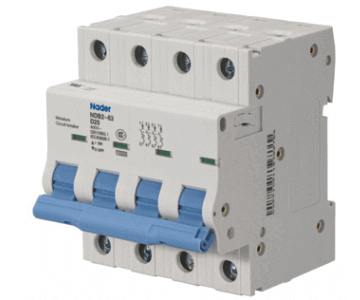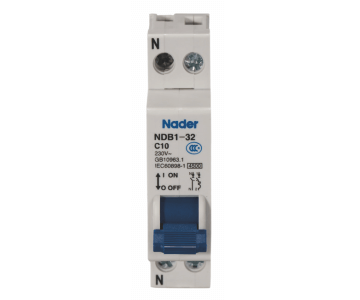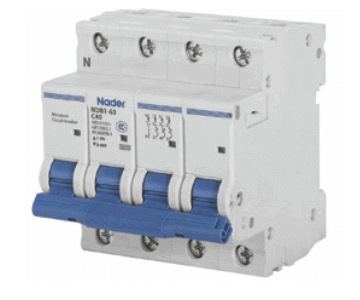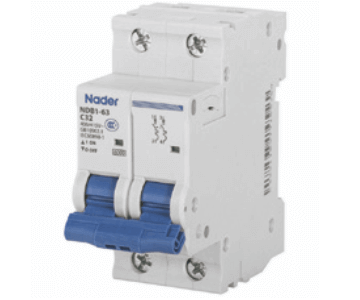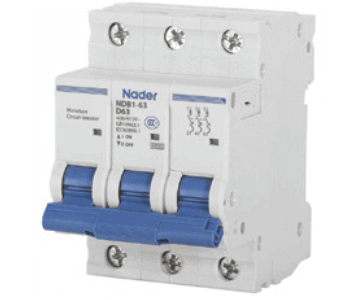1. What is a circuit breaker?
Circuit breaker is a safety device, which ensures the safety of equipment and personnel from electric shocks and damages. They are self-acting and should safely interrupt the current flow on the event of faults. Circuit breakers are a cost-effective and efficient alternative to traditional circuit protection fuses. These devices are reusable and may help in saving a lot of money and downtime.
2. What is a mini circuit breaker?
A miniature circuit breaker (MCB) is a protection device that prevents damage to an equipment /circuit on the event of an overload or short circuit faults. That is designed to replace MINI fuses in most applications. But the size of the circuit breaker is about twice the height of a fuse, so be sure to check that there is enough position for the circuit breakers to fit. The advantage of MCB over fuses is that MCB is reusable even after interruption of the circuit after an overload or short circuit. Moreover, MCB is more sensitive to faults than fuses. Therefore MCB is also most commonly used in the panel board at home. MCB can safely act during short circuits resulting in the current flow up to 15kA, depending on its short circuit breaking capacity. Miniature circuit breakers can be used for the protection of lighting, house electronic devices and equipment with low short-circuit currents. MCB are available in 1 Pole, 2 Poles, 3 Poles, 4 Poles and current rating from 0.5A up to 125A. Extended learning: (Type Selection and fault judgment of Miniature Circuit Breakers)
3. How do Circuit Breakers Work?
A circuit breaker is an automatically operated electrical switch designed to protect an electrical circuit from damage caused by excess current from an overload or short circuit. Circuit breaker is composed of contacts, arc extinguishing system, operating mechanism, tripper, mainly body. Its basic function is to interrupt current flow after a fault is detected.
When short circuit occurs, the magnetic field generated by high current over comes the reaction spring, the release pulls the operation mechanism to move, and the switch trips instantaneously. When overload occurs, electro rheological larger and calorific value increases, and bimetal sheet deforms to a certain extent to promote the action of the mechanism.
4. Can we use AC MCB for DC?
Because of the different arc-burning and arc-extinguishing processes of AC and DC, the ability of AC and DC circuit breakers with the same rated value to break DC power supply is not exactly the same. One of the main reasons for the protection of overstepping mistake operation is to use AC circuit breakers instead of DC circuit breakers. The instantaneous action of circuit breaker is based on the principle of magnetic release. Under the same fixed value, the actual rated value of AC circuit breaker in DC circuit is higher than that of DC circuit breaker.
5. What is a tandem breaker?
A tandem circuit breaker is a double circuit breaker that takes up the space of a single circuit breaker on a panel board. Because tandem circuit breakers allow for two circuits to be installed on a panel board in a one circuit breaker space, they're typically used after a panel board has been filled to capacity with standard circuit breakers.
6. How do I choose a circuit breaker?
Please follow the procedure outlined below to make sure you choose the best suited circuit protection solution for your design. First of all, make sure you list all of the required features and key parameters. What is the voltage? Is it AC or DC? If AC, what frequency? What is the normal load current? What is the trip current? Number of poles and type of poles is normally open (N/O) or normally closed (N/C)? Are any electrically separate auxiliary contacts needed? NO or NC? How many is the size constraint?
Of course, many manufacturers have selection guides to help you narrow down the choices, or consult their websites. Extended learning: (How to choose miniature circuit breaker?)
7. What is difference between MCB and MCCB?
MCB stands for Miniature Circuit Breakers, while MCCB is Molded Case Circuit Breaker. The main difference between the two is their capacity, with the MCB is mainly used for low-energy requirements, like home wiring or small electronic circuits. On the other hand, the MCCB is more suited in providing energy for high-power equipment. Generally, the MCB rated current is under 250 amps.
